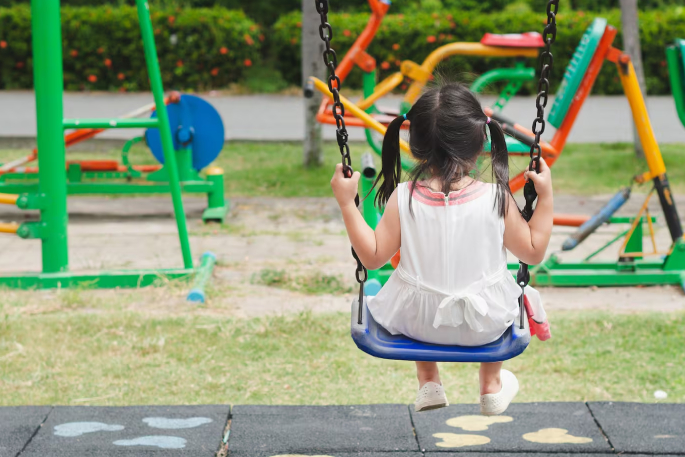
WARNING DISTRESSING CONTENT
“Got any 10 to 14yo stuff?” a father-of-three wrote in a chat group with others keen on child exploitation material.
Daniel James Raynes preferred girls under 14 and had numerous accounts, with names including ‘follow.me.if.you.are.a.pedo’, across three social media platforms which he didn’t mind accessing while either at home or at work.
The 36-year-old Pirongia, Waikato, man was one of 611 people prosecuted nationally for child exploitation material charges in 2023.
But, while the Crown was successful in sending him to jail earlier this year 45% of the other cases ended without a conviction.
Customs boss Simon Peterson says investigating child exploitation cases was difficult, and often the victims were unknown, but in Raynes’ case, they were able to track a 10-year-old girl down to a house in Kentucky, USA.
Using his varying social media accounts, Raynes created 78 different publications and shared 107 objectionable files with at least 278 people connected to various chat forums.
Two hundred of the nearly 600 hundred files were in the most serious category, A, which involves penetrative sexual activity, bestiality, and/or sadism.
He was jailed for three years in the Hamilton District Court in March on 11 charges; seven representative charges of distributing objectionable publications, along with four other charges of possessing and making objectionable publications between April 2020 and May 2023.
He lost a bid for final name suppression but appealed Judge Glen Marshall’s decision to the High Court.
He also lost that appeal so NZME can now reveal his offending together with his name.
‘Got any 10 to 14yo stuff?’
Raynes was creative in naming his social media accounts; follow.me.if.you.are.a.pedo, devildaredme02, devildaredmetoo, tinkerbel.danielle, tinkerbell.danielle.69, and tinkerbell.dani.
In private chats with other users, Raynes told them he was into “10 to 13-year-olds”, and “his favourite age was 12 years old” and asked if you’ve “got any 10 to 14yo stuff”, “do you have young teens”, “13yo”, “yo keen for flat chested girls”, and “prefer 14 and under”.
Raynes also created 77 objectionable publications by screen-recording publications.
One of the recordings involved a 1-minute 23-second video of a female child indecently using a toothbrush.
Police tracked down the girl who lived in Kentucky, USA.
The child, who was aged 10, confirmed that she had sent nude publications of herself to strangers but she didn’t know who they were.
Authorities could not confirm if the child had personally sent Raynes a video as the social media account that the publication came from was not on her mobile.
On the morning of Monday, November 21, 2022, Raynes uploaded six objectionable publications to his group chat, and another at 1.31pm on Monday, March 24, 2023.
When police searched his home they found 515 objectionable publications depicting child exploitation.
They also analysed the IP addresses connected to his various social media accounts and discovered 18 of the publications, sent between Monday, February 22, 2021, and Friday, April 14, 2023, were sent from either his work address or his home in Pirongia.
As well as objectionable publications, police found he’d also searched “non-objectionable” images of pre-pubescent girls in bikinis.
‘No credit for good character’
Crown solicitor Scarlett Hartstone said the offending was aggravated by Raynes downloading and sharing the material along with the ages of those depicted in the material - which “largely ranged” from 5 to 12 years old.
Raynes didn’t deserve credit for previous good character due to the nature and length of the offending.
He’d explained his reasoning for distributing the material was to “meet the needs” of those in the chat groups to avoid being cut from the group.
She also opposed a permanent name suppression order, adding that “bullying, shame or being ostracised from a community” were the natural consequences of criminal offending.
“Name suppression is clearly not available to this defendant.”
 Department of Corrections had concerns about Pirongia man Daniel Raynes serving a home detention sentence due to him living so close to playgrounds and a school. Photo / 123rf.
Department of Corrections had concerns about Pirongia man Daniel Raynes serving a home detention sentence due to him living so close to playgrounds and a school. Photo / 123rf.
“There’s a significant volume of material in this offending ... and is aggravated in circumstances where he was the one who downloaded and shared the material.
It was difficult to assess his remorse as he tried to provide some justification or explanation for his offending by saying the distribution of the material was to avoid being cut out of the social media group.
He added that the groups he uploaded material to were closed groups, and not open to the public.
“There can be no justification for this type of offending.”
‘He’s essentially rehabilitated’
Raynes’ counsel Kerry Hadaway said her client had put a lot of effort into his rehabilitation, having completed 26 sex offender treatment sessions with Auckland-based psychotherapist, Martin Putt.
“He has made a very real and concerted effort towards rehabilitation,” she said.
“Mr Raynes can be provided a reasonable discount for his rehabilitation ... he’s now assessed at below average risk of offending.
“Mr Raynes is now essentially rehabilitated but he could benefit from maintenance.”
As for his offending, less than half of the material distributed was Category A, the worst type.
Most were in Category C.
She pushed for a good character discount, and provided references from family, friends, and “people of standing in the community”.
His partner of six years continued to support him and was in court for his sentencing along with her brother.
She had labelled the offending “very out of character” and said he was “a very good father to their children”.
As for criticism from Hartstone about justifying his offending, Hadaway said he was trying to explain how the forum worked.
“On his behalf, I submit that it’s common in this forum for people who are on there to be required to essentially distribute CSEP material to remain in the forum, that’s the way it works.
“Raynes isn’t trying to justify his offending ... he’s just providing context and he shouldn’t be criticised for [that].”
As probation was concerned with him serving a home detention sentence at his Pirongia home, given its proximity to schools and playgrounds, he could stay at his mother’s property, out of town.
Arguing for a permanent name suppression order, Hadaway said it was because of the couple’s three young children.
“The nature of this offending really is one that will attract vitriolic responses on social media ... and that will cause extreme hardship to these children ... having all these comments directed at their father ...they may be ostracised in their community.
“We know that none of his children were involved.
“The children in this case are more vulnerable given their young age.”
While she lost the battle for suppression, Hadaway successfully fought against an in-court media application by NZME to take Raynes’ photo.
Judge Marshall said there was “very little to be gained by allowing media to take a photo”.
In jailing Raynes, Judge Marshall allowed a total of 50% worth of discounts, for remorse, rehabilitation and previous good character, arriving at the end term of three years.
Given Raynes’s jail term, he was automatically registered to the Child Sex Offender register.
‘Prosecutions and convictions’
Prosecutions and convictions for those charged with possession of objectionable publications have varied widely over the past five years, statistics released to NZME under the Official Information Act show.
The number of prosecutions was its highest nationwide in 2018 at 622, followed closely by 611 last year.
The success rate of those prosecutions was 55%.
However, broken down by district, they spanned the length of the country.
Auckland twice had the most prosecutions per district; in 2018 and 2022, while Waikato was the highest in 2019, Taitokerau in 2020, Canterbury in 2021, and Northern Wellington in 2023.
While Waikato and Southland came in with 100% conviction rates last year, the lowest was registered in Taranaki/Whanganui with just a 20% success rate.
‘Not a victimless crime’
Peterson, chief customs officer of the Child Exploitation Operations Team, welcomed Raynes’ jail term.
Not only was Raynes viewing the “extreme sexual abuse of young girls, by screen-recording the videos and images he was promoting child sexual exploitation and re-victimisation”.
“Real children are abused in making this type of material, which often will remain online forever.
“In this case, customs was able to help safeguard one of those victims in the United States.
“We operate as part of a global task force and our top priority is always to try to identify and protect or safeguard any victims, wherever they are in the world,” he said.
Peterson said Raynes’ case was a “somewhat typical investigation for customs”.
“While only prioritised investigations result in prosecutions, all cases customs investigate are considered serious.
“The majority of cases investigated by customs will involve imagery of victims who cannot, and may never be, identified.
“When a victim is able to be identified and safeguarded, wherever they are in the world, this is obviously a great outcome, but it does not, by itself, increase the seriousness of the investigation or prosecution - we have prosecuted far worse offenders, in terms of type and quantity of CSEM, where there have been no positive victim outcomes.”
‘Prosecutions not necessarily representative of offending’
Peterson said customs couldn’t investigate every allegation and must prioritise those investigations that become prosecutions.
“So what is seen in the courts is not necessarily representative of actual offending alleged.
“Additionally, because this crime type involves offending across New Zealand’s cyber border, customs has not yet observed any distinct geographical patterns of offending.”
Asked about the varying conviction rate across the country, Peterson said that could be due to various factors.
“While customs prosecutions generally hold a high conviction rate, there are many reasons why convictions may not be entered and because these reasons are usually technical, legal or judicial in nature, customs cannot comment authoritatively on those unsuccessful prosecutions.”
CSEM, particularly in the online space, continued to trend upwards year-on-year, he said, and was “immensely harmful to victims”.
“It is a difficult crime type to investigate both mentally and technically as there are increasingly difficult technologies to overcome or contend with when trying to hold offenders to account - for instance anonymising or obfuscating online technologies, end-to-end encryption and a general lag in legislative or procedural capability.”
Customs was usually one of three agencies in New Zealand to prosecute CSEM offenders, along with police and the Department of Internal Affairs.
* Anyone with concerns or suspicions about someone trading in or producing child sexual abuse images or videos can contact Customs confidentially on 0800 WE PROTECT (0800 937 768) or Crimestoppers anonymously on 0800 555 111. If you are, or know of, someone who is at risk or being abused, contact the police immediately.
SEXUAL HARM
Where to get help:
If it's an emergency and you feel that you or someone else is at risk, call 111.
If you've ever experienced sexual assault or abuse and need to talk to someone, contact Safe to Talk confidentially, any time 24/7:
• Call 0800 044 334
• Text 4334
• Email [email protected]
• For more info or to web chat visit safetotalk.nz
Alternatively contact your local police station - click here for a list.
If you have been sexually assaulted, remember it's not your fault.




0 comments
Leave a Comment
You must be logged in to make a comment.